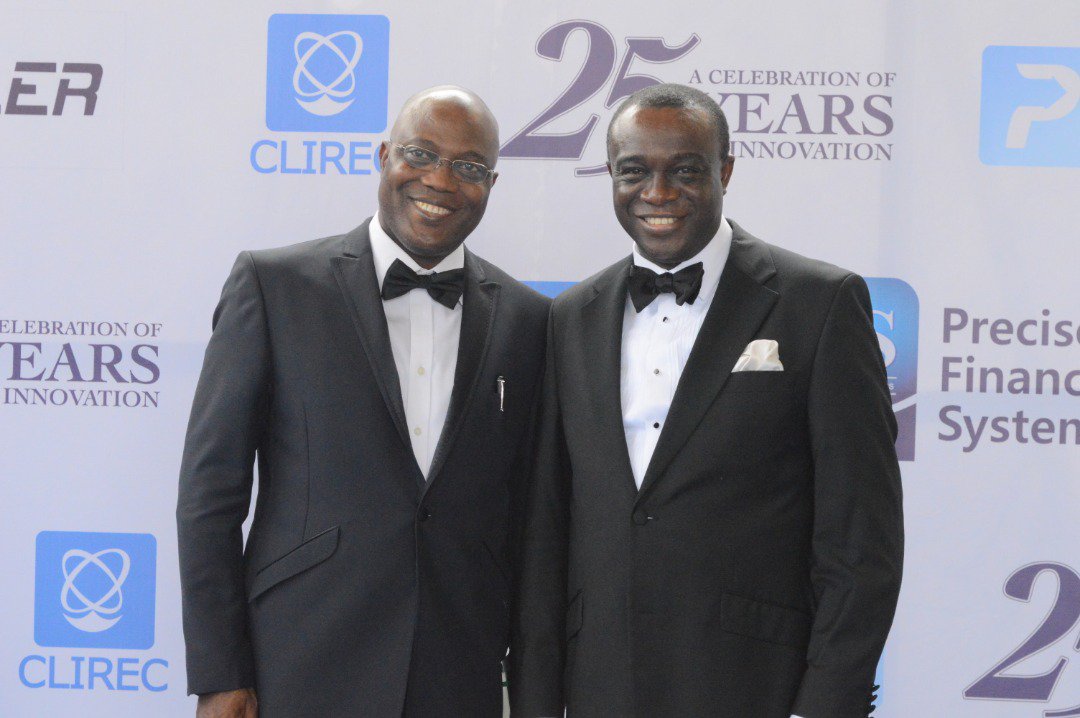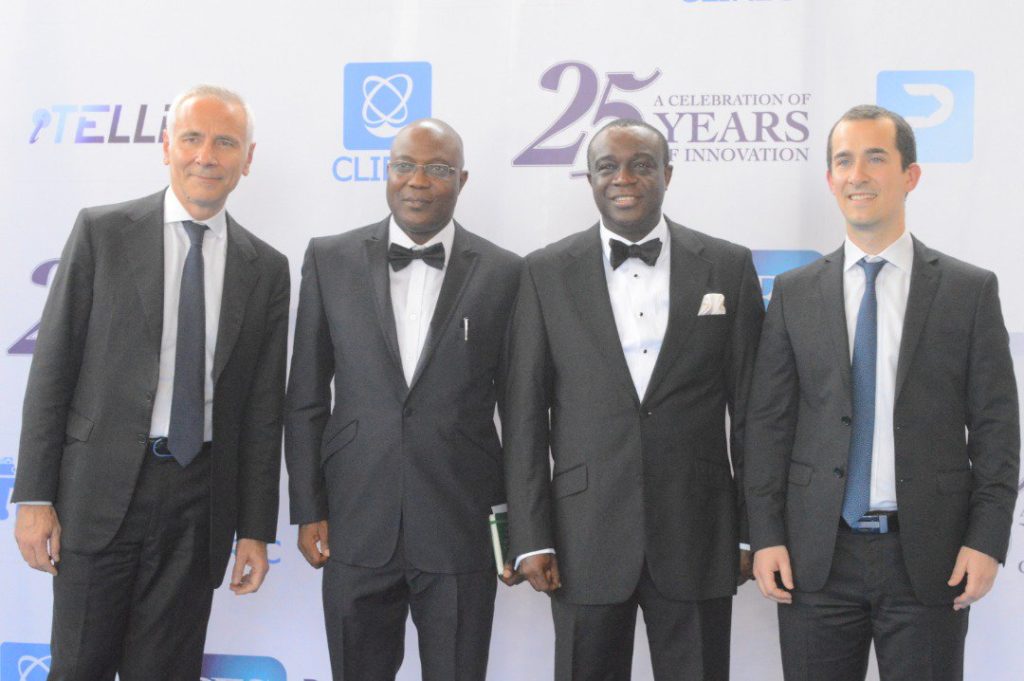Olusegun Oruame – Matters eRising
One of the inspiring narratives in Nigeria’s fiery but bustling technology ecosystem turned 25 at the weekend. While Precise Financial Systems (PFS) Ltd celebrated this milestone, it was also a sober moment for its founders. In those 25 years, they built a company out of passion; and now, they have great tales and sourly stories to tell.
Driven by two men, Yele Okeremi (Ph.D) and Philip Ayeni with shared conviction on providing technology solutions that could improve the country’s financial sector, PFS has evolved to become bigger than its major drivers envisaged and is still growing to reflect market dynamics and the disruptive nature of the sector.
More than anything else, PFS represents the struggle of the local ICT skill sets and tech-companies to prevail in a country perpetually lusting after foreign products and services.
Over a decade ago, when I had the privilege to engage Yele Okeremi, the CEO/Managing Director of PFS on his company’s challenges and why he believes PFS has a chance against the connivance of corporate Nigeria with a government that appeared to be against local software companies, his response was overwhelmingly optimistic.
OKEREMI: “We will not be submerged by Eastern Europe and the Indians, we are like pathfinders, we will find a way and we will grow the industry despite the difficulties.”
“We will not be submerged by Eastern Europe and the Indians, we are like pathfinders, we will find a way and we will grow the industry despite the difficulties,” he had said and I had cursorily noted. PFS was then in its former office at Alagomeji, Murtala Mohammed Way, Yaba.
In that old office, space was tight, staff members were few but ideas were large so was resilience.
In the years that will follow, the PFS team would build a company that was gearing to ride against the tide and become closely associated with the evolution of Nigerian banks from just brick and mortar to digital financial enterprises. More importantly, you could look at the growth curve of PFS and trace the country’s march into fintech as technology evolved and found expression in the local banking industry.
Okeremi holds the baton as the current president of the Institute of Software Practitioners of Nigeria (ISPON) to push the same agenda at association level that he had promoted inside PFS as CEO/Managing Director for all those 25 years.
“I have remained committed to expanding patronage for local software efforts,” he told an IT Edge News team earlier this year in his office in Yaba, Lagos when the team sought to know what would be his focus as ISPON’s president.
Considered in the industry as a local software apostle, Okeremi declared that Nigeria needs a reworking of its national psyche to accept and encourage local efforts. In ISPON, Okeremi has the mandate to pursue the ‘Software Nigeria’ goal. He believes government must lead in the struggle to go local and engage the private sector to drive a national IT strategy for Nigeria. A country grows according to the dictates of its leaders. It is like running a company, said Okeremi that afternoon in Yaba, after a long silence. A company ultimately becomes the function of its leaders. If its drivers lack the vision and the zeal, the company ebbs away as a prospect that never grew.
“PFS captures what it means to be a Nigerian and a Nigerian company functioning as a 21st century entity in a space where policy and public-support infrastructures are largely 20th century – Maybe, 19th century.”
In 25 years, he and team built an indigenous software development company, unloading innovative and world-class solutions running thousands of computers, as a testament of the Nigeria’s ‘Can Do’ spirit. The company has grown an expansive array of clients in Nigeria and more than 27 countries in Africa to become a model in studying Nigeria’s growing list of tech multinationals in the context of local technology companies with footprints across Africa. On this score, this Yaba company is in the same league with CWG Plc and Systemspecs Limited.
PFS touts itself as an ingenious solutions provider uniquely meeting the needs of the market in a way that understands and addresses the peculiar challenges of clients. It is a credit it has rightly earned having built a formidable list of clients in the financial sector whose services ordinarily would have been met by offshore firms. Okeremi affirmed the company’s claim as “successfully positioning herself as a foremost force in the financial software development space of the nation.”
About three years ago, PFS with its German partners launched a cheque payment and clearing solution in GITEX Technology Show, Dubai inside the Nigerian Country Pavilion to serve as a pointer to how it has increasingly impacted on real-time banking processes in Nigeria.
From just being an indigenous software development company, it has evolved to become a solutions company servicing clients across Africa with a portfolio of services that include: cheque and e-payment processing, cheque MICRisation and personalisation solution; security & remittance solution; end-to-end outward and inward cheque clearing solutions; pension remittance monitoring solution; card issuance and monitoring systems; self-service cheque; banking and finance solution; billing and revenue collection solution; bonds and financial derivatives trading and monitoring solution; cooperative societies solution; stock brokering solution; and bureau de change solution.
It is a long list of services for PFS to underscore its growth in 25 years as it engages corporate Nigeria and tackles prejudices against indigenous technology solutions.
If the country has the right policy, cultural and psychology frameworks, Okeremi believes indigenous technology providers can grow faster.
“We need to understand the psychology and mindset to development and as far as I’m concern, Nigeria does not have it – this circulates across leaderships in this country and that tells you the reason why things are the way they are,” he told IT Edge News earlier this year. Nigeria encourages itself to discourage indigenous entrepreneurship and innovation. Companies like PFS have had to pay the price of pathfinders seeking to alter for good the cultural and psychological predispositions of Nigerians and their government to local products.
Companies like PFS work in perpetual hope and anger and fear; and somehow they manage to balance the merits against the odds to keep moving. “The secret is that we have remained focused and refusing to be distracted and discouraged,” Ayeni mentioned during a side chat this year at a local software forum sponsored by foreign solution providers. The irony was not lost. It’s a twist that depicts the entire challenge faced by indigenous software companies when they wrestle government to define just what the local content policy means vis-à-vis the concept of globalization and patronage of offshore software companies.
“Nigeria encourages itself to discourage indigenous entrepreneurship …. Companies like PFS have had to pay the price of pathfinders seeking to alter for good the cultural and psychological predispositions of Nigerians and their government to local products.”
Okeremi agreed that compliance to local content policy has scaled up. “Nobody can deny all these. But when we look at what we should be doing, my opinion is that we have not even started at all….We don’t really understand what it means to promote local content at all,” he expressed in frustration.
But for Okeremi and Ayeni, PFS has been nurtured on stubborn hope: that clear vision and determination to put indigenous technology solutions at the point of need of corporate Nigeria.
Their story, managing a software development company to become a tech-solutions provider, captures the essence of managing an enterprise in Nigeria. Perhaps, much more, PFS captures what it means to be a Nigerian and a Nigerian company functioning as a 21st century entity in a space where policy and public-support infrastructures are largely 20th century – Maybe, 19th century.
Congrats, PFS – you are the new vision that is Nigerian.































